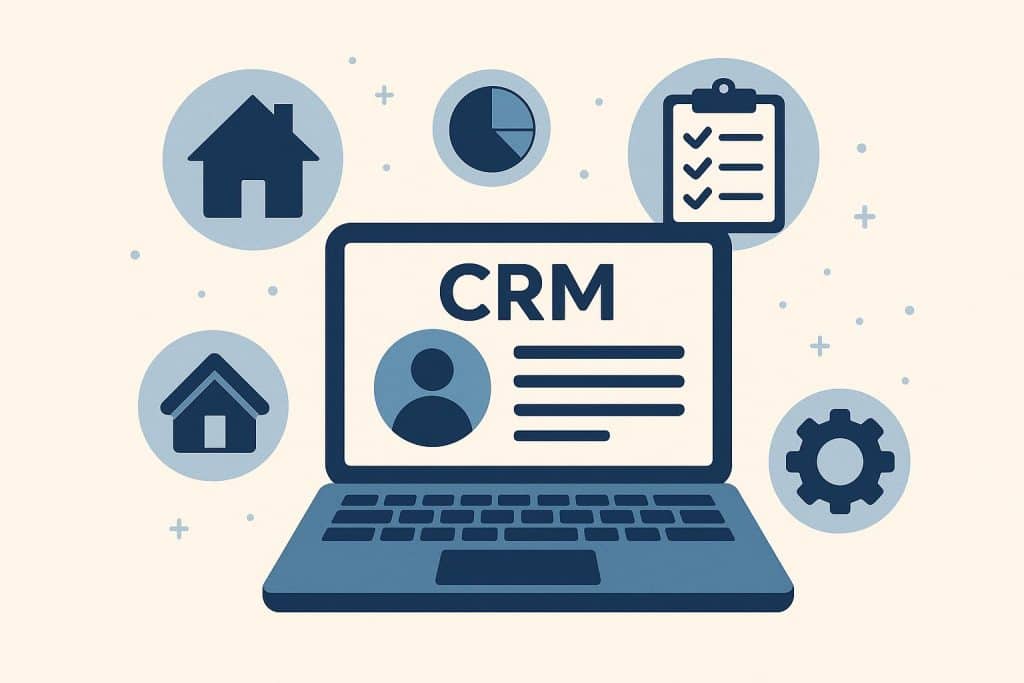Running a successful home service company takes more than skilled craftsmanship. Whether you specialize in renovations, plumbing, HVAC, or landscaping, today’s customers expect seamless communication, fast follow-ups, and reliable scheduling. To keep up with those expectations, many home service businesses are turning to Customer Relationship Management (CRM) systems.
A CRM is no longer just a tool for big corporations — it’s a game-changer for local service providers. For companies like S&B Renovations, CRM software has become an essential part of managing leads, streamlining operations, and creating better customer experiences.
What Is a CRM?
A CRM (Customer Relationship Management) system is software designed to help businesses organize and track interactions with potential and existing customers. Instead of relying on paper files, sticky notes, or scattered spreadsheets, a CRM centralizes everything in one place.
For home service companies, this means:
– Storing customer contact information securely.
– Tracking every phone call, email, or appointment.
– Monitoring project progress and job history.
– Automating follow-ups, reminders, and invoices.
In short, a CRM allows service providers to focus more on doing great work and less on chasing paperwork.
Key Benefits of CRM for Home Service Businesses
1. Better Lead Management
Home service companies often receive leads from multiple sources — website forms, phone calls, referrals, or platforms like Angi and Houzz. Without a system, it’s easy for leads to get lost or forgotten.
A CRM ensures every inquiry is captured, categorized, and assigned to the right team member. For example, when a homeowner contacts SB Home Reno about a kitchen remodel, the CRM logs the request instantly, sets reminders for follow-up, and keeps the lead moving through the pipeline.
2. Improved Customer Communication
Missed calls and slow responses can cost home service companies valuable business. With a CRM, every interaction is tracked, and automated follow-ups ensure no customer feels ignored. Text and email reminders can confirm appointments, while automated thank-you notes leave a lasting impression.
This consistency helps businesses like S&B Renovations build stronger relationships, which often leads to repeat projects and referrals.
3. Streamlined Scheduling and Project Management
Juggling multiple crews, job sites, and service calls is a major challenge. CRM systems integrate scheduling tools that allow managers to assign jobs, track progress, and avoid double-booking. Customers also benefit from reminders and status updates, improving overall satisfaction.
4. Data and Insights for Smarter Decisions
CRM software provides valuable insights into conversion rates, popular services, and lead sources. These insights help home service companies adjust marketing strategies and allocate resources wisely.
5. Increased Efficiency and Productivity
By automating follow-ups, invoicing, and reminders, CRMs free up employees to focus on service delivery. For growing businesses, this efficiency means handling more projects without adding unnecessary overhead.
Real-World Example: S&B Renovations
S&B Renovations, known for high-quality remodeling services, uses CRM tools to manage customer relationships from first contact to project completion. Their system allows them to respond to new leads quickly, maintain detailed records of client preferences, and ensure smooth communication throughout the renovation process.
This investment in technology not only improves their internal workflow but also creates a better customer experience. Homeowners working with S&B feel informed and supported every step of the way — a major reason why they continue to earn referrals and repeat business.
Why Now Is the Time to Invest in CRM
The home services industry is more competitive than ever. Customers have more options, higher expectations, and less patience for disorganized businesses. A CRM system gives small and mid-sized companies the tools they need to compete with larger brands.
According to HubSpot, businesses that use CRM systems see improved customer satisfaction, higher retention rates, and significant revenue growth. For home service providers, this translates into more booked jobs, fewer missed opportunities, and stronger reputations.
Final Thoughts
For home service companies, a CRM is not just software — it’s a competitive advantage. It helps capture leads, streamline operations, improve customer relationships, and ultimately grow revenue.
Companies like S&B Renovations are proving that adopting CRM systems leads to more organized operations and happier clients. And as customer expectations continue to rise in 2025, having the right tools in place will separate the leaders from those left behind.
If you’re a service provider looking to improve efficiency and customer experience, following the example of SB Home Reno could be the first step toward long-term success.
